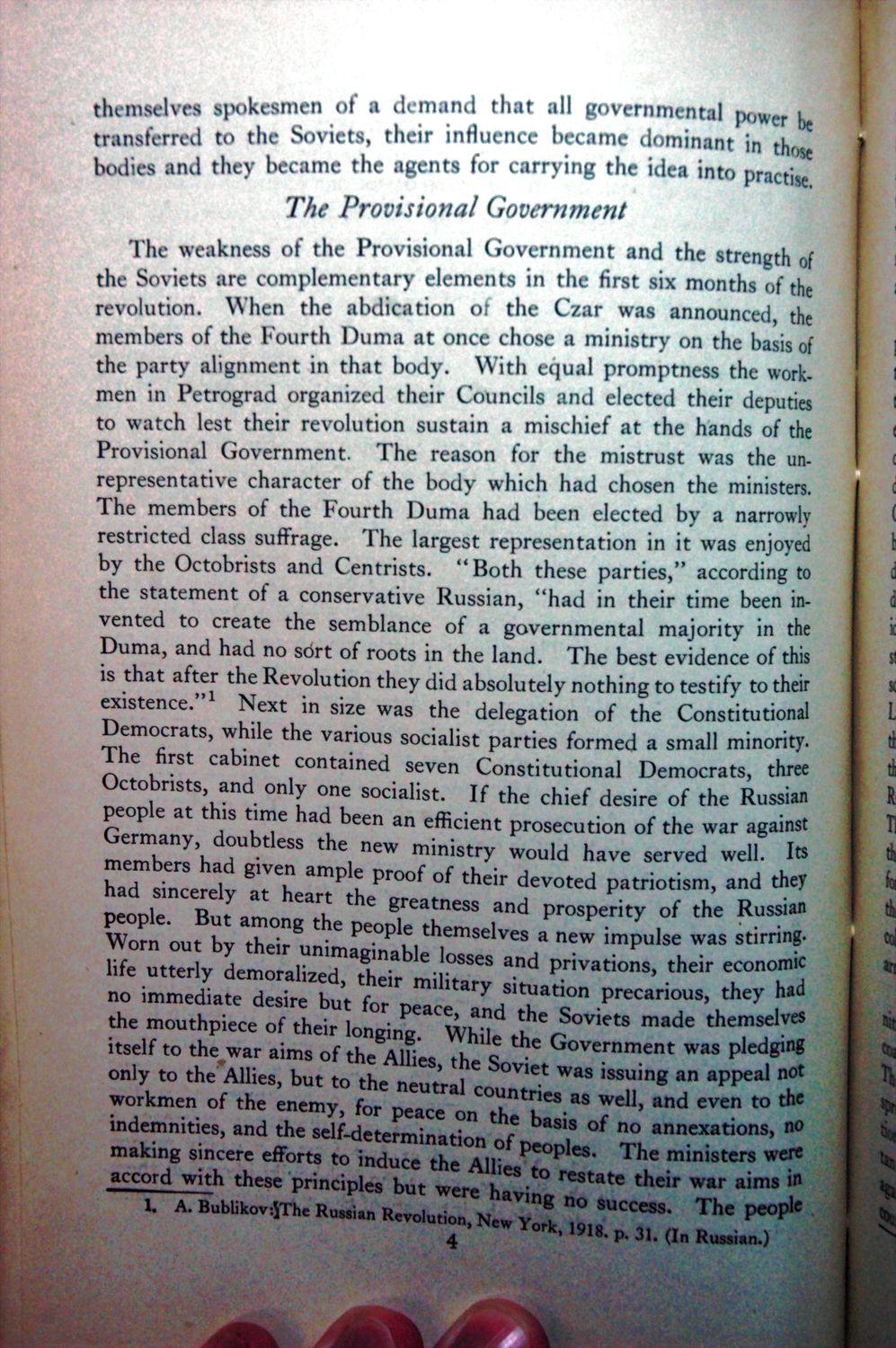Caption: War Publications - WWI Compilation 1923 - Article 22
This is a reduced-resolution page image for fast online browsing.

EXTRACTED TEXT FROM PAGE:
tlu-maelvet spokesmen of a demand that all governmental p ()Wcr i transferred to the Soviets, their influence became dominant in tlv* bodies and they became the agents for carrying the idea into practisT The Provisional Government The weakness of the Provisional Government and the strength of the Soviets are complementary elements in the first six months of the revolution. When the abdication of the Czar was announced, the members of the Fourth Duma at once chose a ministry on the basis of body. Witl an to watch lest their revolution sustain a mischief at the hands of the Provisional Government. The reason for the mistrust was the unrepresentative character of the body which had chosen the ministers. The members of the Fourth Duma had been elected by a narrowly restricted class suffrage. The largest representation in it was enjoyed by the Octobrists and Centrists. "Both these parties," according to the statement of a conservative Russian, "had in their time been invented to create the semblance of a governmental majority in the Duma, and had no sort of roots in the land. The best evidence of this is that after the Revolution they did absolutely nothing to testify to their existence." Next in size was the delegation of the Constitutional Democrats, while the various socialist parties formed a small minority. ine hrst cabinet contained seven Constitutional Democrats, three Octobrists, and only one socialist. If the chief desire of the Russian people at this time had been an efficient prosecution of the war against meXA 7 \ "^ ministry Would have served welK ItS f devoted atriotism and the n^sbcerelv T h *7t *""* ° ^ P > ' Catne88 and ros e people But a m o T 2 * ' ? P P ™y of the Russian t h e m S e l v e s a n Worn out bt their" ^ ™ *»P>*e was stirring. ^tSy1e^STi^•l r , , and p r i v a t i o n s t h e i r economic preCari US > no immediate desTr but t r ^ l * I T * ™ ° > ^ de t M V the mouthpiece of ^ ^ sinT ^ ^ ^ ' ™ ° u„~ir^ *%. . B« vvnile the GnvprnmaMf „,«o nUmnff ippeal and indemnit annexations PC PlCS The mi wcrc making sincere efforts to induce the All ° * ™*« 0 t h d r w a r a i m s in accord with these principles but were h * ****** 8 B SUCC The people 1. A. Bublikov:XThe Russian R«.^...u_ x * ? " ° « S . T h e people 4• " , CWXOrk,,9l8 they - P - M I n Russian.) 3
|